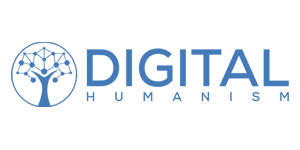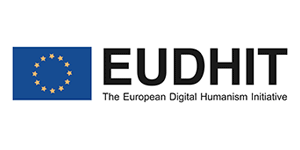Digitaler Humanismus zielt auf eine lebenswerte digitale Zukunft, die Mensch, Umwelt und Gesellschaft in den Mittelpunkt stellt. Während IT-Zukunftsvisionen die Beseitigung von Leid versprechen, diskutieren wir Verletzlichkeit als Quelle von Sinn, Gesellschaft und Sorge. Ist es möglich, die digitale Zukunft ausgehend von der Fragilität von Mensch und Natur zu denken? Ein Dialog zwischen Informatik, Philosophie und Kunst zur Entwicklung von Positionen eines auf Verletzlichkeit basierenden digitalen Humanismus.
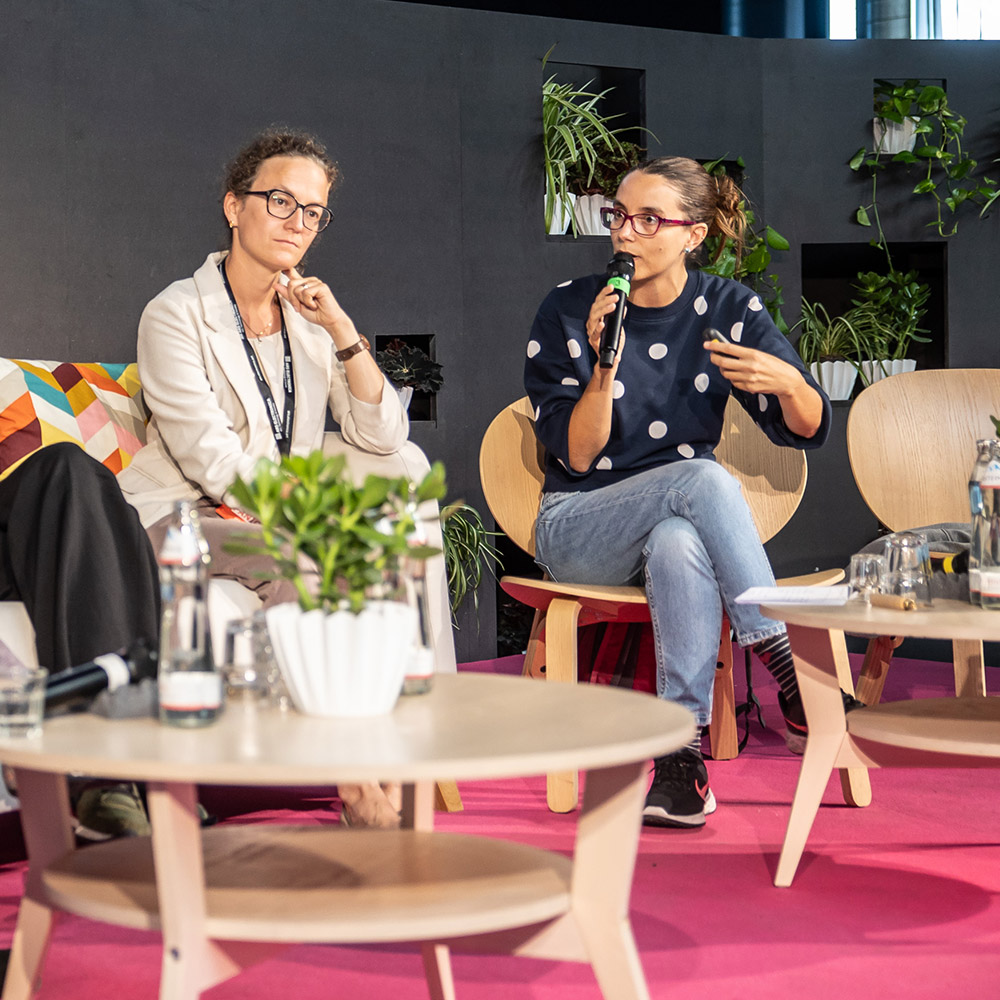
Digitality and Vulnerability / Erich Prem (AT), Franziska Nori (DE), Christopher Frauenberger (AT), Noemi Iglesias (ES), Silke Grabinger (AT), Photo: tom mesic
Conference
Digitalität und Verletzlichkeit
Panel zu Digitalem Humanismus und der Verletzlichkeit des Menschen im Digitalen
Erich Prem (AT), Franziska Nori (DE), Christopher Frauenberger (AT), Noemi Iglesias (ES), Silke Grabinger (AT)
POSTCITY, First Floor, Conference Hall
Sprache //
EN
-
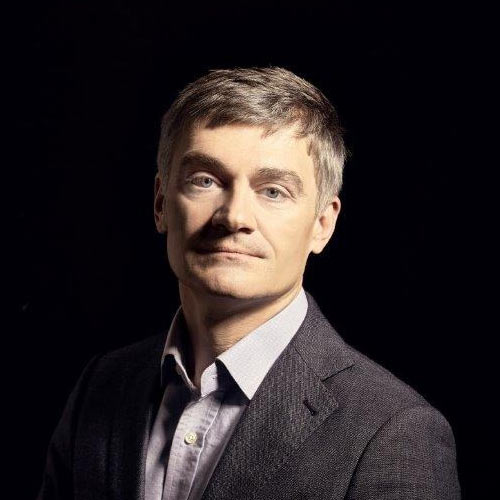
Photo: Markus Kutschera
Erich Prem
Erich Prem is a seasoned computer scientist, innovation expert, and philosopher working at the intersection of AI, ethics, and technology policy. As the CEO of strategy consultancy eutema, he combines technical expertise with expertise in societal and ethical dimensions of digital technologies. Erich holds doctorates in philosophy and in computer science (AI). He is the president of the Austrian Association of Digital Humanism and coordinator of EUDHIT—the EU Digital Humanism Initiative.
-
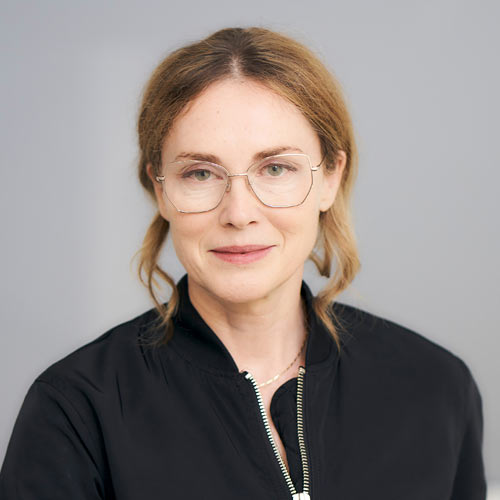
Photo: Norbert Miguletz / Frankfurter Kunstverein
Franziska Nori
Prof. Franziska Nori has been Director of the Frankfurter Kunstverein since 2014. Under her leadership, a program addressing social issues at the intersection of art and science has emerged. Her focus lies on the relationship between humans and nature in the Anthropocene, the transformation of human perception in virtual spaces and through AI, as well as the political role of cultural institutions. Nori is a professor of Museology at the University Lorenzo de’ Medici in Florence and also teaches at the University of Bern.
-
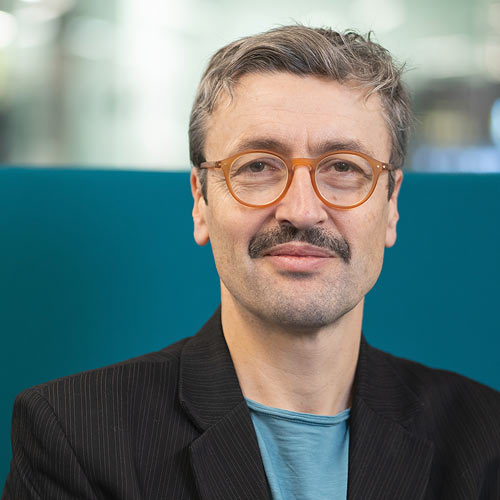
Photo: Martin Dörsch / IT:U
Christopher Frauenberger
Christopher Frauenberger ist Professor für Human-Computer Interaction und beschäftigt sich mit der Frage, wie sinnstiftende Beziehungen zwischen Menschen und digitaler Technologie gestaltet werden können. Seine Arbeit ist stark interdisziplinär geprägt und bewegt sich zwischen gestalterischer Praxis – etwa in den Bereichen Pflege oder Bildung – und theoretischer Reflexion über unser Verhältnis zu Technologien wie Künstlicher Intelligenz. Seine methodischen Ansätze sind in der Informatik verankert und werden durch Konzepte aus den Sozialwissenschaften und der Technikphilosophie ergänzt.
-

Photo: Paul S. White
Noemi Iglesias Barrios
Noemi Iglesias Barrios ist eine multidisziplinäre Künstlerin, deren Arbeiten die Schnittstelle zwischen romantischen Gefühlen und Konsumkultur durch Skulptur, Porzellan und performative Langzeitformate erforschen. Ihre Praxis untersucht, wie digitale Rituale Zuneigung und Begehren formen und reflektiert Intimität als kommerzialisierte Erfahrung. Sie stellte international aus, unter anderem im Museo Nacional Thyssen-Bornemisza, am iMAL in Brüssel und bei der Onassis Foundation.
-
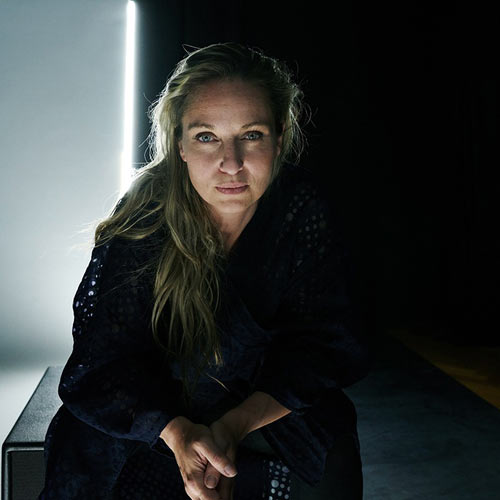
Photo: Meinrad Hofer
Silke Grabinger
Silke Grabinger ist eine österreichische Künstlerin und Choreografin. Ihre Kunstwerke und Konzepte verbinden zeitgenössischen Tanz mit performativer Kunst und Robotik. Ihr Fokus liegt auf der kritischen Auseinandersetzung mit gesellschaftlichen Phänomenen, künstlerischen Paradigmen und der Funktion und Position des Publikums. Sie ist Gründerin und künstlerische Leiterin von SILK Fluegge und SILK Cie. Im Jahr 2021 eröffnete sie das KLISCOPE, eine ehemalige Kapelle in Linz, als kreativen Raum für neue Experimente und Visionen.
-
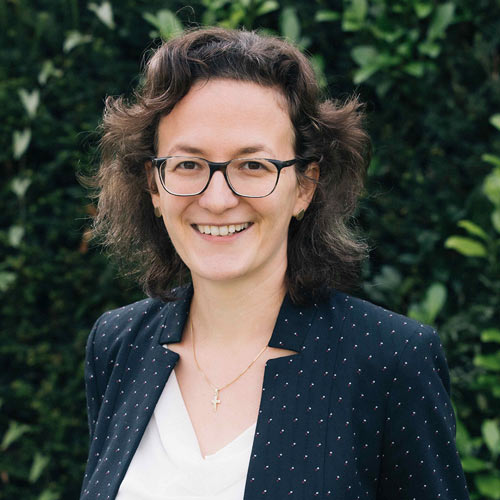
Photo: Michaela Quast-Neulinger
Michaela Quast-Neulinger
Prof. Quast-Neulinger’s research lies at the intersection of systematic theology, social and political theory. She focuses on the possible contribution of religion to the common good. As a theologian, she is in critical dialogue with the “signs of the time studying secularisation and political liberalism as well as their critique. She is interested in conceptions and practices of power, questions concerning the secular and the religious, and practices of interreligious and intercultural encounter. The concept of “vulnerability” has been a key topic in her research for many years.
